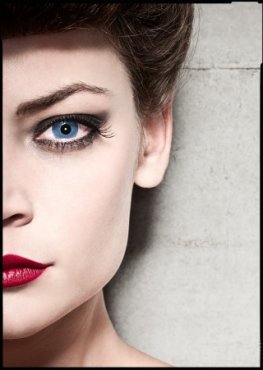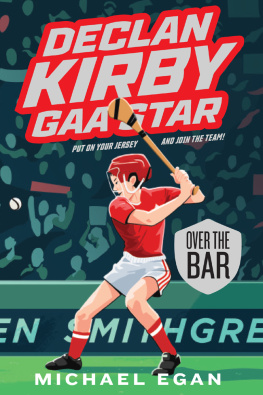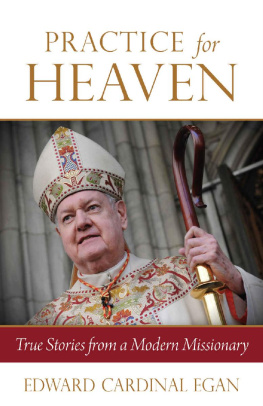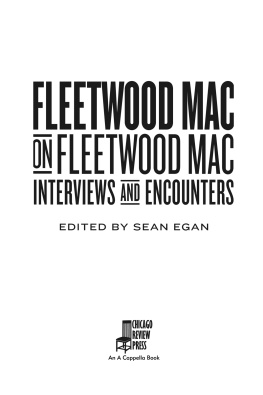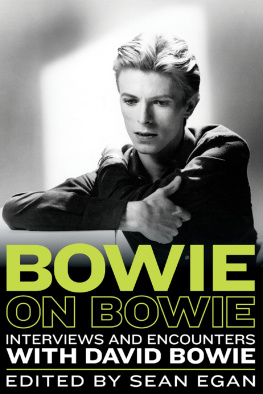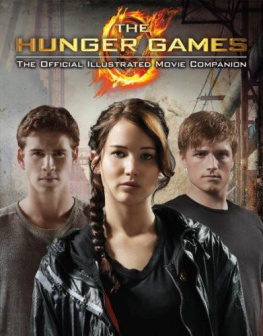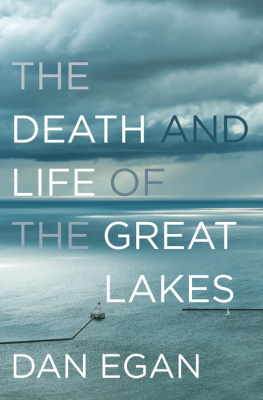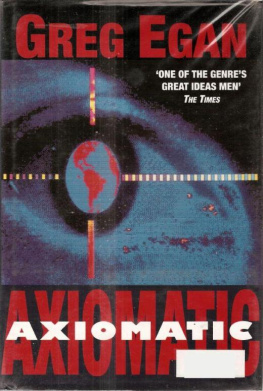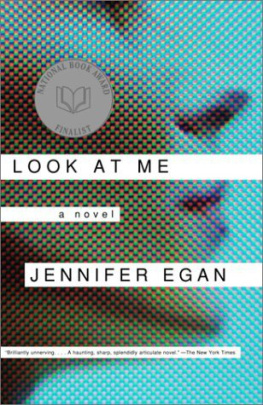T hroughout my life, Ive been blessed with a growing community of supporters. As I lived and grew to be an adult, my family, friends, coworkers, and supporters helped me achieve things Im proud of. They were all proud, too. Many people, especially my godmother, Alice Erickson, began to ask me, When are you writing a book about your extraordinary life?
Alice, my dear godmother, I have the answer to your question: The time for me to tell my story is now. Thank you for encouraging me and urging me to share what I have learned. You were confident that I could do it, and that helped me believe it, too. You are one of the biggest supporters in my worldwide community of people who want the best for me and help me achieve it.
This is the story of my life, written by me, but its not the first time Ive been featured in a book. I was surprised when Paul Eder, Raoul Davis, and Kathy Palokoff included me in their book Firestarters: How Innovators, Instigators, and Initiators Can Inspire You to Ignite Your Own Life. Paul Eder found me on my website, took a chance on me with an interview, and ended up giving me one of the biggest opportunities and platforms of my life. From that book to workshops, Paul and I have made a great team. Raoul Davis promoted my message in the public with our creation of DavidEganSpeaks on Facebook. Kathy Palokoff helped with the original memoir proposal you are reading and got us started on a path for success. Thank you, Paul, Raoul, and Kathy. You are the reason Ive written this book. You opened a new path and taught me how to grab the attention of the book-publishing market. Thanks to Leticia Gomez of Savvy Literary Services, who tirelessly worked with all of us to find the perfect publisher.
I also learned that writing a book is a project that can only be done right with a community of supporters and contributors. I want to thank all of you who responded to my call for support when I shared that I wanted to write a memoir. My supporters are broad and diverse. I am so thankful to each one of you for sending stories, quotes, and comments to enrich my own content. You reminded me of things I may have forgotten. You gave me your own perspectives, leading me to see things in new ways.
I am humbled and so appreciative of the insightful and encouraging way that many of you described me. Some sent a paragraph, and some sent pages. Even if your contribution is not literally included in the book, it is not because it did not make me smile or I did not like it. Many found their place in this book, while I am saving others for future writings on my social media and website, at davideganadvocacy.com.
For all of the written stories, events, and quote contributions, I sincerely thank Sujata Bardhan, Nicki Pombier Berger, Erin Croyle, Mary Davis, Karen Gaffney, Jared Gold, Barbara Haight, Rita Holstein, Rick Jeffrey, Shane Kanady, Dave Lenox, the McKinley family, Nancy Mercer, Shirley Nuhn, Joe OBrien, Sylvia Piper, Parker Ramsdell, Vincent Randazzo, Lisa Roti and family, David Thomason, Michelle Witten, Roy Zeidman, and Rachelle Zola.
An unexpectedly helpful contribution came from our friend Kate McKenna, who connected my mom and me to Will Schermerhorn, our partner in writing and editing this book. Will is a longtime friend, but we did not know that he had more skills than just photography, videography, and online content marketing. Kate told us about his power of the pen and ability to transform our written words into powerfully structured chapters with key memories and messages. We learned quickly that more did not mean better. I enjoyed our face-to-face meetings and his passion to partner with us in this writing journey.
I want to send a sincere thank you to everyone else who has had a role in my life. You are too many to mention here, but you will recognize yourself in my stories. I am thankful to my employers, my community, and the many organizations, especially Special Olympics, the Down syndrome community, and the Arc, which I serve and interact with, and which supports people with disabilities. You play a crucial role in advocating and opening new paths for all of us. A shout out also to all those who, like me, have an extra twenty-first chromosome and other disabilities. We all rock, and my story mirrors many of your stories. The future is bright, and I am filled with gratitude.
Throughout my life, my family has been the bedrock of my support, and I am indebted to each one of you. Thank you for your support, as well as your eagerness and interest, in seeing my project succeed. To my sisters, Teresa and Miranda, thank you for sharing your views of what it means to live with a brother who has Down syndrome. To my brothers-in-law, Matthew Philipp and Travis Fulk, thank you for sharing your perspectives. To my sister-in-law, Juline Kaleyias, thank you for revealing our familys inner circle traits and reviewing many chapters with a keen eye for detail and clarifications. To my brother Marc, thank you for sharing your stories and reading every single chapter, helping to rewrite and expand content in ways that truly made a difference.
Last but not least, I want to acknowledge my parents. They inspire me every day and are always ready to make my path brighter. I want to thank my dad for telling the stories and believing in me. Without my mom, this book would not have been started and completed. She gave it every free hour she had and worked diligently to ensure that we are telling a compelling story that will inspire people both with and without disabilities to believe in themselves and pursue their dreams. Thank you, Mom. You are my number-one champion.
I met David shortly after my first child Arlo was born. Arlos Down syndrome diagnosis had floored me, mostly because I had never met anyone with the condition. David was like a ray of sunshine. Not only did he offer a glimpse of how spectacular my sons future could be, he became my first friend with Down syndrome. We advocate together, celebrate together. He has become part of my life as a peer, an equal. He is paving the way so my sons generation can be truly included without having to fight so hard for it.
Erin Croyle, writer and journalist
T hings were not easy for my parents when I was born in 1977. They were graduate students in Madison, Wisconsin. They were pursuing PhDs at Wisconsin University, where they first met. Dad was studying nuclear engineering, and Mom was studying educational psychology. I am pretty sure they had not planned on having a baby in the midst of their studies.
I was a surprise first child. Thats a challenge to start with. I was born with Down syndrome, and that was also an unexpected surprise. Neither of my parents had ever met anyone with Down syndrome or even with an intellectual disability. Almost everything about me was new to them. They were not prepared.
Society was not prepared, either. Their baby was born into a world where people with intellectual disabilities were rarely seen in public and seldom regarded as worthwhile. The phrase used to describe our conditionmentally retardedwas ugly and demeaning. Even the clinical word used to describe people with Down syndromemongoloidwas offensive and racist.
New civil rights laws had already lifted up and empowered many parts of U.S. society, but those laws did not address societys attitudes toward me and others with intellectual disabilities. The idea of having someone like me learning in a regular classroom in a public school wasnt even on the table then. Mainstreaming and inclusion were uncommon terms, even in the disability community. Mom and Dad were highly educated people who wanted to work in complicated and challenging fields. Whatever dreams they had for their first child changed suddenly on September 17, 1977.
MY BABY IS BEAUTIFUL


